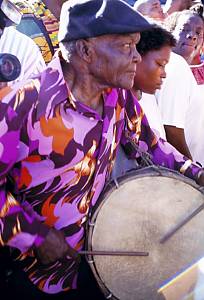In the Caribbean, we are taught by our elders to always be respectful of others, especially those who are older than us. We are also taught the virtues of saying “good morning”, or saying “hello” when we enter a room or a business place or even when meeting a stranger for the first time. These traditions do not necessarily make the people of the Caribbean unique. As a collective, however, we are a people who have been conditioned to freely express ourselves with a smile, a hug, or other tactile means. I have always wondered if our effortless warmth, exploited as a key feature of our Tourism product, is a direct, if not unconscious response, to the centuries of enforced chattel slavery, during which the majority of our forebears were prevented from expressing any form of solidarity, “oneness” or even love.
That apart, I reflect on my own upbringing in Jamaica and how our own cultural practices informed our interactions: There is a saying in Jamaica that when our houses are fully cleaned and tidied it is because we are expecting visitors, either local or foreign. I recall whenever we had relatives or colleagues from “farin” (foreign) we made plans to accommodate them and make them comfortable… even to the extent where we would deny ourselves our usual pleasures. Visitors would always be greeted with a drink or a meal and those who stayed with us would have the best of traditional foods and be taken island-wide to engage with our natural attractions. We showed the best of us, because that was the way we were taught, but more importantly, because we wanted to. We did not have to be rich, we gave the best of what we had. As such, it always puzzled me whenever we went to friends or family abroad, we never received the same treatment. Indeed, one was often left to fend for yourself and you were always aware of an unspoken code of not overstaying your welcome. The Western codes governing camaraderie, it seemed, were incongruent with our philosophy of Ubuntu.
COVID-19’s imposed cultural practices of social distancing and the avoidance of touch is also in diametric opposition to the expression of the Caribbean self. While the recommendations of social distancing ranging from at least three to as much as twelve feet are instructive, and represent a key component in the fight against the spread of the virus, social distancing in the Caribbean is an unnatural practice, and is normally reserved to show protest or to insult. The now imposed cultural practice of social distancing, has the ability to negatively impact on the very psyche of Caribbean people who are hardwired, socialized and acculturised to behave in a completely different manner. Indeed, social distancing is teaching us to now practice cultural distancing, to adopt the ways of the “other” and to keep away from, rather than embrace.
Within the confines of COVID-19’s stay-at-home, work-from-home regime, many traditional cultural practices have been revisited if not revived. The lack of opportunities to dine out or to buy fast food has made families resort to cooking their own meals…meals that are more often than not traditional in nature, using recipes that were passed on from older generations. Indeed, the remarkable irony about COVID-19’s imposed culture of isolation is that it has facilitated the transmission of cultural knowledge from parents who now work from home, to children, whom have been ensconced for their safety. Songs, stories and even proverbs about resilience and withstanding trials and tribulations (such as those which reference the West African god Anansi) abound and are being recycled to teach life lessons and transmit coping mechanisms to deal with the pandemic.
The designations employed and the presentation in the texts and documents referenced in this platform do not imply the expression of any opinion whatsoever on the part of UNESCO concerning the legal status of any country, territory, city or area or of its authorities or concerning the delimitation of its frontiers or boundaries.
